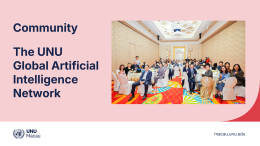Abstract
In many countries, public administrations increasingly use Artificial Intelligence (AI) algorithms to decide on public service provisions among their citizens. Citizen profiles are assessed for their worthiness to receive public services, scoring using value criteria to distinguish between legal /fraudulent recipients, deserving/non-deserving, or needy/non-needy. Although types and degrees of AI implementation vary between countries, delegating decisions about the distribution of scarce resources based on value judgements to machines leads everywhere to important questions of ethics, justice, quality, responsibility, accountability, and transparency of welfare decisions. However, perceptions, attitudes and acceptance of AI use in service provision vary between countries due to different norms and values in-use, different technology status, economic models, civil society sentiments, and legislative, executive and judicial characteristics.
Are existing cultural value patterns driving the use of AI, or is AI driving cultural change? What are the impacts of AI for future societies and their value systems? Which policies, behavioural changes and institutional developments are necessary and appropriate to prevent or support certain scenarios? The appraisal of potential social futures is a huge research challenge.
This talk presents an approach that uses cultural comparison dimensions to build context-specific Agent-Based Models simulations for policy advice and testing policy interventions. Simulations work with data at the country level using intelligent agents to model future societies and experiment with AI-in-use for projecting societal techno-futures.
Bio
Since 2013, Prof. Dr. Petra Ahrweiler is Full Professor of Sociology of Technology and Innovation, Social Simulation, at Johannes Gutenberg University Mainz, Germany.
Her appointment at JGU started in 2013 with getting leave for obtaining the position of Director and CEO at the EA European Academy of Technology and Innovation Assessment in Bad Neuenahr-Ahrweiler, Germany, until 2017. Before 2013, she had been Full Professor of Technology and Innovation Management at Michael Smurfit School of Business, University College Dublin, Ireland, and Director of its Innovation Research Unit IRU. Furthermore, she was Research Fellow of the Engineering Systems Division at Massachusetts Institute of Technology (MIT), Cambridge/USA. From the middle of September this year she will additionally take over the position as president of the European Social Simulation Association (ESSA).
She started her professional career with studying Social Sciences at the University of Hamburg, Germany. At Free University Berlin, Germany, she received her PhD for a study on Artificial Intelligence, and got her habilitation at the University of Bielefeld, Germany, for a study on simulation in Science and Technology Studies. Petra won various research prizes, has long experience in coordinating and completing international, mostly European research projects, publishes inter-disciplinarily in international journals, and has been awarded with fellowships of various scientific societies such as the German Academy of Technical Sciences acatech or AcademiaNet, the network of excellent female scientists in Germany.




